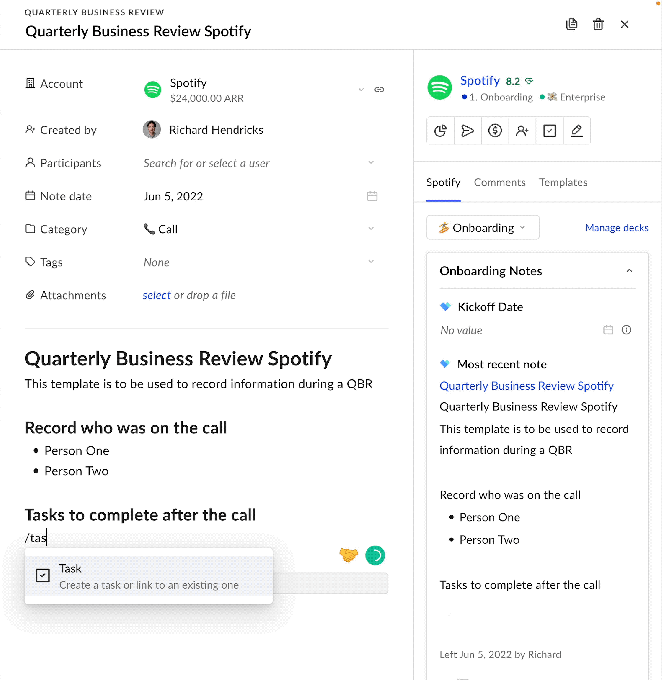Showing customer success platforms haven’t lost steam, Vitally secures $30M
Customer success platforms (CSPs), or software designed to help business-to-business companies manage and monitor their customer success efforts, are increasingly in demand. According to a Research and Markets report, the market for global CSPs will be worth $3.1 billion by 2026.
Some sources attribute the sector’s growth to the economic impact of the pandemic, which they say forced companies to double down on customer success efforts as the world shifted to digital channels. Whether that’s true or not, CSP vendors have clearly benefited from the uptick in interest. Case in point, Vitally, which sells CSP software, today announced that it raised $30 million in a Series B round led by Next47, with participation from Andreessen Horowitz, HubSpot Ventures and NewView Capital.
With the fresh cash, Vitally’s total raised stands at $40.6 million. (The company didn’t disclose its exact valuation, but it’s reportedly 5x higher than the previous valuation.) Co-founder and CEO Jamie Davidson says that it’s being put mostly toward hiring and product development efforts; Vitally plans to double the size of its 62-person workforce by 2024.
So Vitally’s raising money. But is there anything tangible that sets it apart from the other CSPs out there? After all, Spark and Catalyst have attracted cash, too, for their respective data-driven CSP products. Totango, another rival, landed $100 million in a growth investment in September 2021.
Davidson — who prior to Vitally co-founded Pathgather, a talent development platform that was acquired by Degreed in 2018 — argues that the current generation of CSPs and productivity tools fall short of helping customer success teams do their best work.
“Today’s CSPs lack critical project management and product reporting capabilities, while productivity tools do not integrate with essential sources of customer data located across the tech stack,” he told TechCrunch in an email interview. “These tools force businesses to either manage work out of a platform that is not designed for productivity or use separate platforms to manage customer data and daily activity. In either case, customer success teams are left unhappy and inefficient.”

Image Credits: Vitally
Vitally improves on this, Davidson claims, by combining productivity and collaboration tools — tools along the lines of what you’d find in Notion, Asana or Monday.com — in a single workspace. An automation tool gives users a way to quickly build customer success workflows, like email campaign workflows, while project and task trackers help keep teams and customers aligned (at least in theory). Vitally’s Docs and Hubs products, meanwhile, leverage customer data to automatically fill fields like customer account information and help teams — e.g. account management, onboarding, etc. — organize and manage their work.
“In one of the most challenging funding markets, particularly for growth rounds, we started and closed our series B — from first discussion to signed term sheets — in just two weeks,” Davidson said. “The reason our investors made such a quick decision to back Vitally, even in a very tough investment climate, is that we are reinventing work for business-to-business customer success … Vitally operates as both the source of truth for customer data and the home for post-sale operations.”
At least a few companies believe that to be the case — Segment, Productboard, Deel and Spiff are among Vitally’s paying customers. Davidson claims that revenue grew 4x since the start of 2022, but wouldn’t divulge the specific figures.
When asked about the macroeconomic challenges that might lie ahead, Davidson said he’s confident that CSPs as a software category represent an even larger market opportunity than sales and marketing automation. VCs, he believes, will continue to prioritize investments that incorporate strong product-led growth — a strength of Vitally’s, in his mind.
“The broader economic slowdown makes customer success teams and Vitally more essential than ever,” Davidson said. “Customer success teams remain critical for preserving revenue — i.e. reducing churn and driving expansion. At the same time, those teams are being asked to operate more effectively with fewer resources, both directly and indirectly. Vitally makes that possible. In times of growth, customer success teams using Vitally can accelerate. In a slowdown, Vitally helps customer success teams preserve revenue and generally keeps the company on an even keel.”
Davidson drew particular attention to HubSpot’s participation in Vitally’s Series B round, which he took as a major vote of confidence from a well-established player. When contacted for comment via email, Brandon Greer, HubSpot head of ventures, had this to say: “HubSpot and Vitally share a mission of making companies successful in every interaction with their customers … Our investment and partnership with Vitally are of strategic importance to HubSpot, and we have only scratched the surface of the value we can deliver to the market and our customers.”

